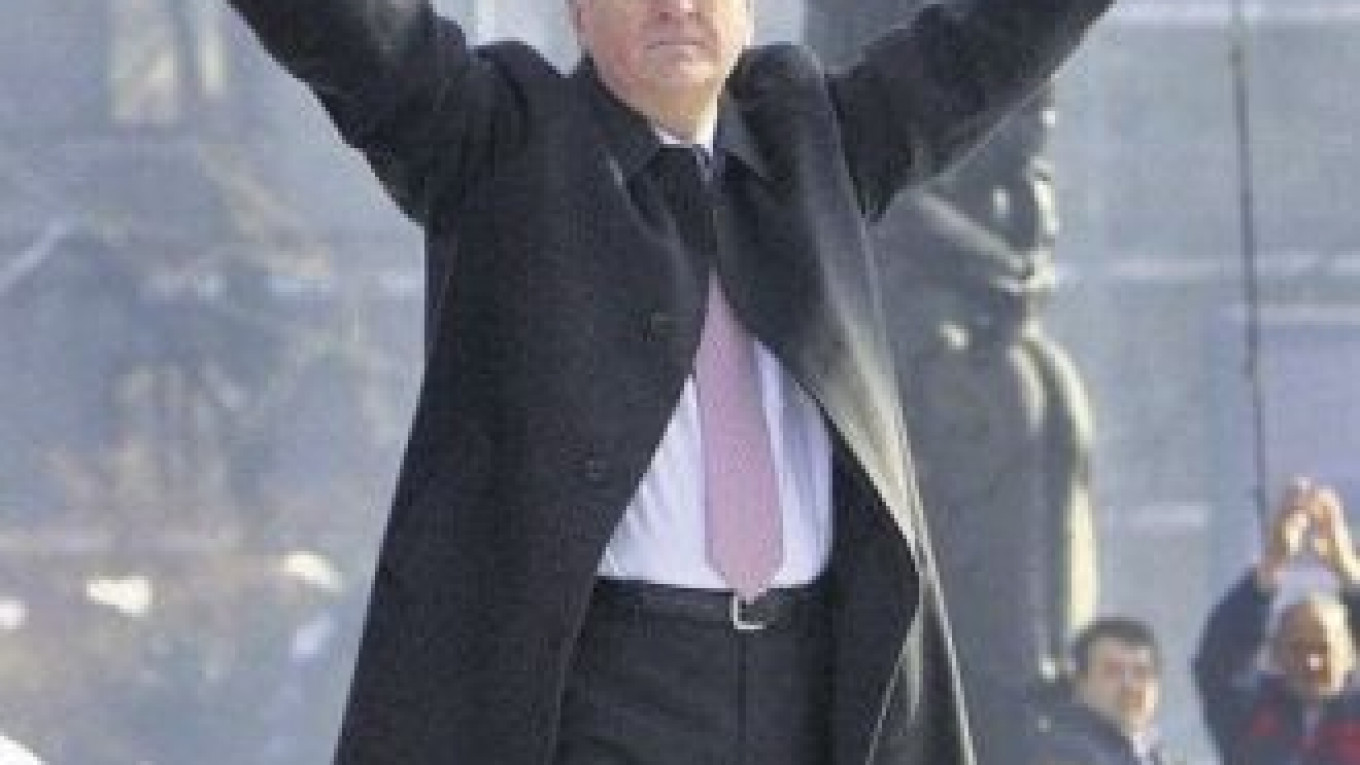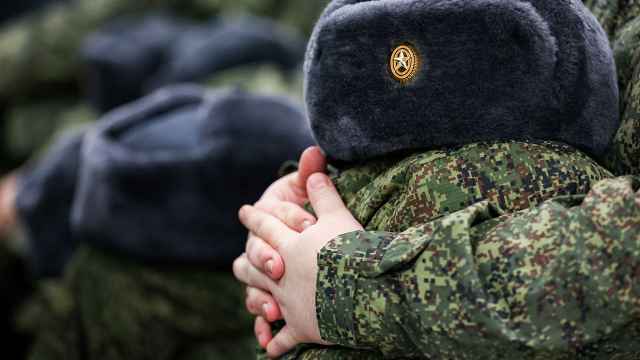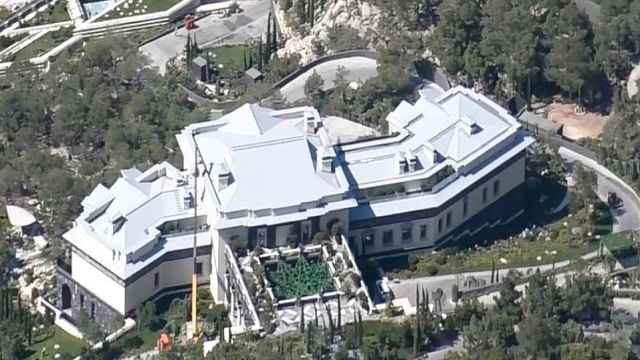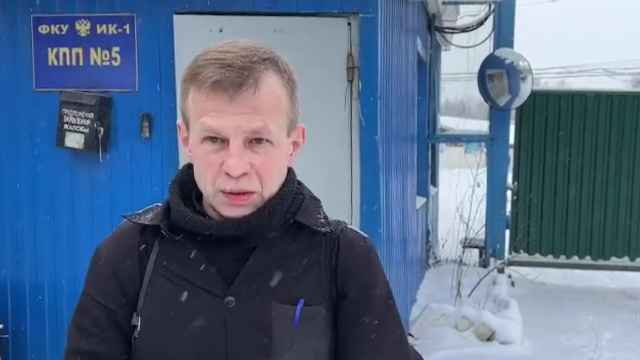Among the motley crew of international observers invited to oversee the presidential election last week, Serbian politician Tomislav Nikolic was probably the most grateful for Prime Minister Vladimir’s Putin victory.
Nikolic said jokingly that a chance to meet Putin would have been a “good photo opportunity.”
“I am glad that Putin won because a stronger Russia will be good for our relationship,” Nikolic said.
He is believed to be Russia’s favored candidate in the Serbian parliamentary elections slated for April.
As leader of the Serbian Progressive Party, he is considered the main challenger to Serbian President Boris Tadic.
The 60-year-old spoke positively of the conduct during the March 4 vote.
“Elections here have been held better than in some European countries,” Nikolic said.
He showed little regard for the other candidates challenging Putin in the campaign.
“Those people look doubtful, since they have no desire to win,” he said, referring to Vladimir Zhirinovsky and Gennady Zyuganov, both of whom have sought the presidency multiple times.
Speaking about Russia, Nikolic recalled another authoritarian leader, former Serbian President Slobodan Milosevic.
Nikolic said the situation in Russia reminded him of Serbia in the early 1990s, when Milosevic faced no serious challenger.
“Today’s opposition … doesn’t have strong candidates. Maybe in 20 years, new leaders will emerge,” he said.
But in avoiding criticism of Russian authorities, Nikolic was also trying to curry favor with Russian officials, who see Tadic as “looking too much to the West and European Union,” a senior Russian diplomat told Kommersant in late February.
Russia is Serbia’s second-largest trading partner, after Germany. In addition, Russia is critical because it controls the pipeline for the ambitious Gazprom South Stream project to supply gas to European partners. The pipeline is scheduled to open by 2015.
“South Stream will make our country an important strategic partner to supply gas in Europe,” Nikolic said, Izvestia reported.
Nikolic formerly advocated that Russia build a military base in Serbia.
Nikolic didn’t meet Putin during his meeting, but his visit to Moscow was “noticed in certain circles,” a Russian expert who organized the Serbian politician’s visit said.
He spoke on condition of anonymity because of the sensitivity of the matter.
Unlike his former boss, Serbian Radical Party leader Vojslav Sheshel, Nikolic maintains a softer stance toward the European Union.
In 2008, Nikolic left the Serbian Radical Party over a disagreement with the party’s opposition to cooperation with the EU.
“We have to continue negotiations with the European Union, but only if they do not keep insisting on Kosovo’s independence,” Nikolic said, referring to the former province of Serbia that broke away to form its own country.
Speaking about his foreign policy goals, Nikolic said he favors the approach of former Yugoslav strongman Josip Broz Tito.
“I believe that Serbian foreign policy should look like the foreign policy of former Yugoslavia and should be balanced between Russia and the West,” Nikolic said.
But analysts interviewed by The Moscow Times expressed doubts that such an approach would be feasible.
Alla Yazkova, a Balkan region expert at the Russian Academy of Sciences’
Institute of Europe, said Nikolic’s Russia-leaning line would change if he won a high political office in Serbia.
“No leader would be able to maintain a single-line policy,” Yazkova said.
She added that his support is stronger in the provinces than in the capital.
Maxim Yusin, a Kommersant newspaper foreign affairs columnist said that although Russian officials express their support for Nikolic, his stance would change if he assumed power.
“He would follow the pro-European Union course, since he has no other options,” Yusin said. “Serbia is a candidate state, and bringing the country to the European Union would be a priority for any politician.”
A Message from The Moscow Times:
Dear readers,
We are facing unprecedented challenges. Russia's Prosecutor General's Office has designated The Moscow Times as an "undesirable" organization, criminalizing our work and putting our staff at risk of prosecution. This follows our earlier unjust labeling as a "foreign agent."
These actions are direct attempts to silence independent journalism in Russia. The authorities claim our work "discredits the decisions of the Russian leadership." We see things differently: we strive to provide accurate, unbiased reporting on Russia.
We, the journalists of The Moscow Times, refuse to be silenced. But to continue our work, we need your help.
Your support, no matter how small, makes a world of difference. If you can, please support us monthly starting from just $2. It's quick to set up, and every contribution makes a significant impact.
By supporting The Moscow Times, you're defending open, independent journalism in the face of repression. Thank you for standing with us.
Remind me later.






